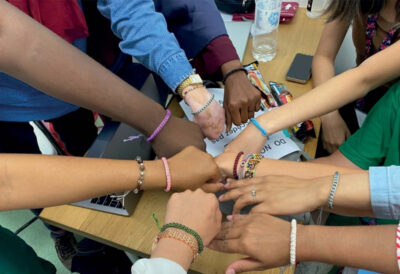Main content
Since June 2012, I have had the privilege of serving as one of the principal investigators in two consecutive European Union funded research projects on surgery in resource-limited settings: COST-Africa and SURG-Africa.[1]
The COST-Africa project (2012-2016) provided improved surgical training of non-physician clinicians (NPCs) in Malawi and Zambia. The SURG-Africa project (running until June 2021) included Malawi, Zambia, and Tanzania – the latter country having a long history of assistant medical officers (AMOs) undertaking surgery in rural district hospitals (Text box A). The intervention supported by this project involved mentoring of surgical teams – based at rural district hospitals – by surgical specialists, obstetrician/ gynaecologists, anaesthesiologists and senior theatre nurses. For more details about surgical mentoring and how this is implemented in Malawi, please see the interview with professor Eric Borgstein, elsewhere in this edition of MTb. This article focuses on the results of health economics studies conducted by Radboud University Medical Centre (UMC), one of the consortium partners in SURG-Africa.
| A: Background and aim of SURG-Africa project Guided by a health systems-strengthening framework, the Scaling up Safe Surgery of District and Rural Populations in Africa project (SURG-Africa) implements and evaluates surgical mentoring with a view to scaling up the delivery of accessible elective and emergency surgery at district hospitals to national level programmes in Malawi, Zambia and Tanzania. The overall aim is to implement surgical systems that deliver safe, affordable and sustainable essential surgical services to rural populations in low- and middle-income countries. |
Cost of surgery
In our studies, we calculated the costs of all types of resources that hospitals use in providing surgery (e.g. infrastructure, personnel, supplies, utilities, transport), irrespective of whether or not patients pay a fee. Surgical services typically constitute 18-24% of the total cost of running a district hospital.[2-4] Another study established the financial challenges that patients and their households face when they undergo surgery: while direct payments for surgical services may be limited because of government funded free healthcare policies, the combined burden of indirect payments and lost income often leads to impoverishment and therefore precludes universal access to surgery (Text box B).
| B: Household cost of surgery Out-of-pocket household expenditure associated with essential surgery in Malawi is high and, in many instances, catastrophic, putting households, especially those who are already poor, at risk of further impoverishment. In a study conducted in 2015-2016, for example, catastrophic expenditure for hernia surgery occurred in 94% of district and 87% of central hospital patients. When indirect costs were added to the out-of-pocket expenditure, it constituted more than 10% of the monthly per capita household income for 97% and 90% of the district and central hospital patients, respectively. We concluded that the much needed scaling-up of surgical services in rural areas of Malawi needs to be accompanied by financial risk protection measures, such as health insurance.[5] |
Successes
We also explored the complex dimensions of implementing surgical team mentoring through a technique called ‘group model building’: we had interactive workshops with health professionals involved in the provision of surgery to obtain greater insight into how complex adaptive systems (in our case surgical systems) work.[6] In Malawi, for example, this resulted in several scenarios – all fitting in with national policy and regulations – to increase incentives to perform quality surgery at the district hospital level and strengthen the referral of surgical cases that require specialist care.
Joint work resulted in scientific output (23 peer-reviewed publications so far) but also, and more importantly, gave support to district hospital level surgery for (mostly) rural populations. We see a tendency that more surgery is being done (paper yet to be published), with a larger variety of surgical procedures being undertaken for common conditions, be they obstetric, gynaecological, orthopaedic or trauma-related, or belonging to the broad domain of general surgery. In addition, we see fewer unnecessary surgical referrals. Changes in surgical outcomes are still being analysed. However, we can already say that, while surgery used to be a stepchild with little or no dedicated funding, we now see district hospitals paying more attention to the provision of quality surgical care.
Two factors have been particularly important for our successes. First, our close partnerships with professional associations, which have driven the surgical training and mentoring and played an active role in the research part, in particular the Surgical Society of Zambia (affiliated with the University of Zambia), the Tanzania Surgical Association, and the College of Surgeons of East, Central and Southern Africa. Second, the establishment of the Lancet Commission on Global Surgery, the release of its landmark report,[7,8] and the adoption of World Health Assembly Resolution 68.15.[9] These three events provided impetus for several countries in Sub-Saharan Africa, including Zambia and Tanzania, to develop and adopt national surgical, obstetric and anaesthesia plans, which lay the foundations for strengthening surgical services and working towards making them universally accessible.[10] The SURG-Africa team is proud to be part of that process.
Lessons learned
With the SURG-Africa project now drawing to a close and the consortium team gearing up for dissemination of results on Global Surgery Day (May 25th), one may ask: could we have achieved more? Yes, we could! Under COST-Africa we made a slow start, and the evaluation of the surgical training programme for clinical officers could have been more robust in its design. Collectively we learned from that, and under SURG-Africa our partnership further matured, with stronger leadership within the consortium member institutions themselves. While we have strong working relationships with policy makers, researchers, hospital managers, clinicians and professional associations, our connection with national policy-making processes is somewhat erratic.
The European academic partners (Royal College of Surgeons in Ireland, Oxford University and Radboud UMC) are translating the evidence on what works and what doesn’t work into policy messages, taking into account the local context. Our Malawian, Tanzanian and Zambian colleagues are much better at setting the right tone and seizing opportunities for influencing policy. I believe this is something which characterises our partnership: consortium partner institutions have a common purpose, play complementary roles, and treat each other with respect.
References
- SURG-Africa [Internet]. Available from: https://www.surgafrica.eu/
- Ifeanyichi M, Broekhuizen H, Juma A, et al. Economic costs of providing district- and regional-level surgeries in Tanzania. Int J Health Pol Manag. 2021 Feb 23. doi: 10.34172/ijhpm.2021.09
- Bijlmakers L, Cornelissen, Cheelo M, et al. The cost of providing and scaling up surgery: a comparison of a district hospital and a referral hospital in Zambia. Health Policy Plann. 2018 Dec 1;33(10):1055-1064. doi: 10.1093/heapol/czy086
- Cornelissen D, Mwapasa G, Gajewski J, et al. The cost of providing district-level surgery in Malawi. World J Surg. 2018 Jan;42(1):46-53. doi 10.1007/s00268-017-4166-5
- Bijlmakers L, Wientjes M, Mwapasa G, et al. Out-of-pocket payments and catastrophic household expenditure to access essential surgery in Malawi – a cross-sectional patient-survey. Annals of Medicine and Surgery 2019; 43:85-90. doi: 10.1016/j.amsu. 2019.06.00
- Broekhuizen H, Lansu M, Gajewski J, et al. Using group model building to capture the complex dynamics of scaling up district-level surgery in Arusha region, Tanzania. Int J Health Pol Manag. 2020 Dec 13. doi: 10.34172/ijhpm.2020.249
- The Lancet Commission on Global Surgery, Global surgery 2030 [Internet]. The Lancet Commission on Global Surgery; 2015 [accessed 2019 Feb 12]. Available from: https://www.lancetglobalsurgery.org/
- Meara JG, Leather AJM, Hagander L, et al. Global Surgery 2030: evidence and solutions for achieving health, welfare, and economic development. Lancet. 2015 Aug 8;386(9993):569-624. doi: 10.1016/S0140-6736(15) 60160-X
- World Health Organization [Internet]. Geneva: World Health Organization; 2021. Emergency and essential surgical care. Available from: https://www.who.int/surgery/wha-eb/en/
- Gajewski J, Bijlmakers L, Brugha R. Global surgery: informing national strategies for scaling up surgery in Sub-Saharan Africa. Int J Health Policy Manag. 2018 Jun 1;7(6):481-4. doi: 10.15171/ijhpm.2018.27



















































